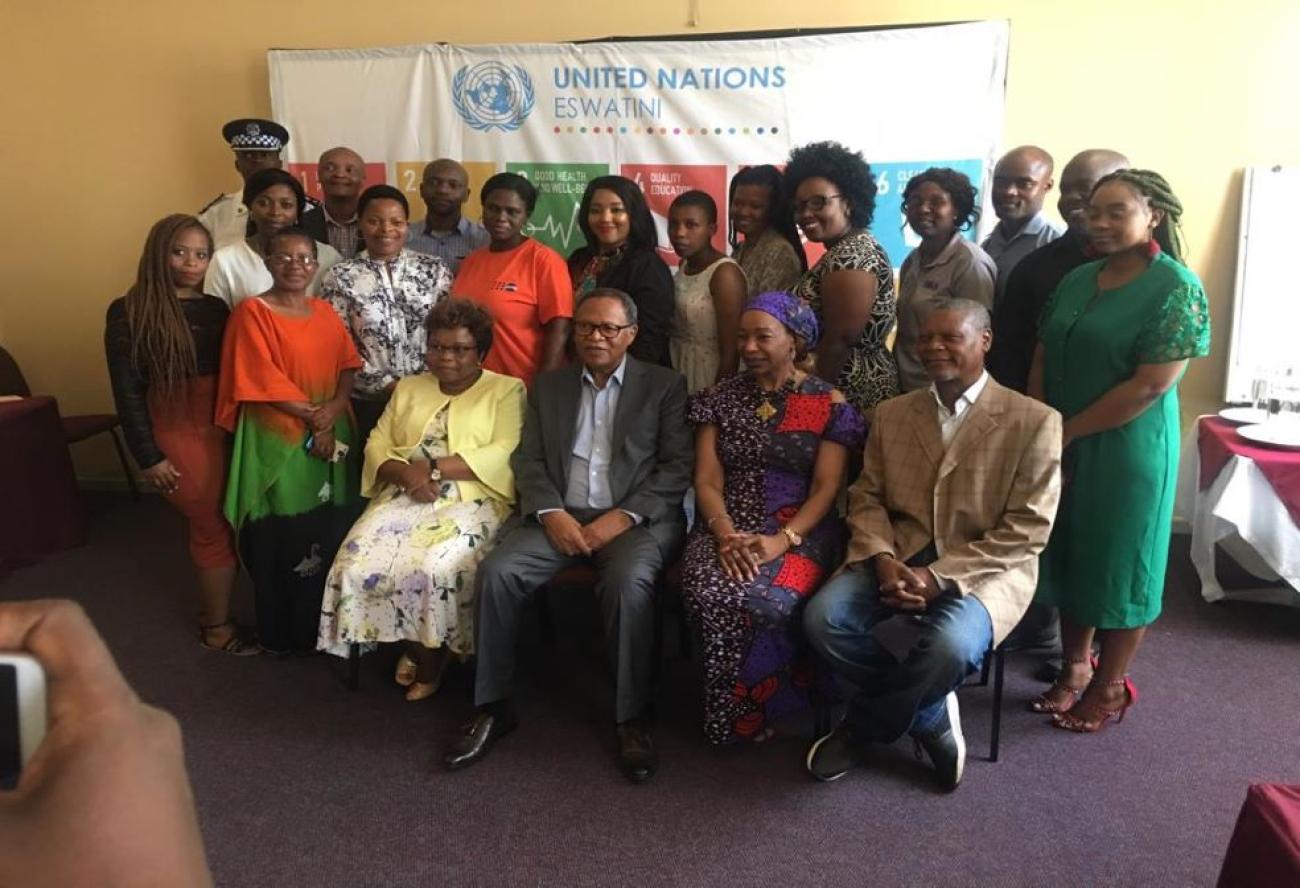UN supports training of journalists on gender sensitive reporting and SODV Act

A one-day workshop was held for media practitioners on gender sensitive reporting and the Sexual Offences and Domestic Violence (SODV) Act of 2018.
The Deputy Prime Ministers Office (DPMO) and the Eswatini Editors Forum, with support from the United Nations in Eswatini, hosted a one-day workshop for journalists and media practitioners on gender sensitive reporting and the Sexual Offences and Domestic Violence (SODV) Act of 2018.
Since coming into effect, the SODV Act has been a subject of wide public debate and controversy despite that it was enacted to protect men and women from domestic violence and sexual assault as well as give effect to the UN Convention on the Elimination of All Forms of Discrimination Against Women (CEDAW).
The workshop, held at Bethel Court in Ezulwini, is part of a series of UN-supported seminars aimed at building capacity of the media to play a greater role in accelerating the achievement of the Sustainable Development Goals (SDGs) and national development priorities.
In her opening address, UN Resident Coordinator, Ms Nathalie Ndongo-Seh noted that gender equality and women empowerment was an important cross-cutting area which has a strong bearing on the achievement of the other 16 SDGs. “There is no doubt that sexual offences and domestic violence undermine the country’s aspiration to achieve the targets under SDG 5 on gender equality by 2030,” she said.
She expressed concern that the SODV Act has become a subject of wide public debate and controversy, most of which were misguided. “This will no doubt impact negatively in the implementation of this important piece of legislation and may result in reviews that may deprive the country the gains achieved after a protracted process,” she stated. The SODV Bill took about 15 years to be passed into law.
Ms. Ndongo-Seh reiterated that the UN family in Eswatini is committed to strengthening journalism capacity and fostering professionalism. “It is our conviction that strong ethical and professional journalism are needed to dispel the growing trends of fake news and deliberate misinformation of the public,” she said.
Deputy Prime Minister, Senator Themba Masuku, who delivered the key note address, thanked the UN for supporting the workshop, noting that the media were a vital stakeholder. He lamented that the media was not consulted at the beginning of the roll-out of the SODV Act. “The media should have been the first to be consulted and educated on the SODV Act before it was released to the public. He noted that the media wields the biggest influence in society and have the power to influence the opinions of Emaswati.
He appealed to the media to remain the trusted vehicle for factual reporting and avoid creating misguided perceptions about SODV Act. He reiterated that the SODV Act protects the rights of men and women and should not be perceived as only protecting women and children.
The session on the SODV Act provisions was facilitated by Ms. Silindile Nkosi, Communications Manager the Swaziland Action Group Against Abuse (SWAGAA) and Ms. Nontobeko Mbuyane, Communications Manager at World Vision Eswatini.
The workshop included presentations on SDGs and Sexual and Reproductive Health.
Mr. Sibusiso Mngadi, UNRCO Programme Communications and Advocacy Officer, presented on the SDGs. He challenged the media to look for news angles and opportunities in the SDGs as most issues were interesting and newsworthy.
Ms. Thamary Silindza, UNFPA’s Programme Officer, and Ms Lindiwe Malaza, SRH and Family Planning Officer in the Ministry of Health presented on condom programming, highlighting the need for the media to promote both the male and female condoms. The presentation focussed on the importance of condom use to prevent STIs, HIV and unwanted pregnancies.
Mr. Jabu Matsebula, veteran journalist and Secretary-General of the Editors Forum presented on journalism ethics and challenged journalists to strive for accurate, fair and thorough reporting.





